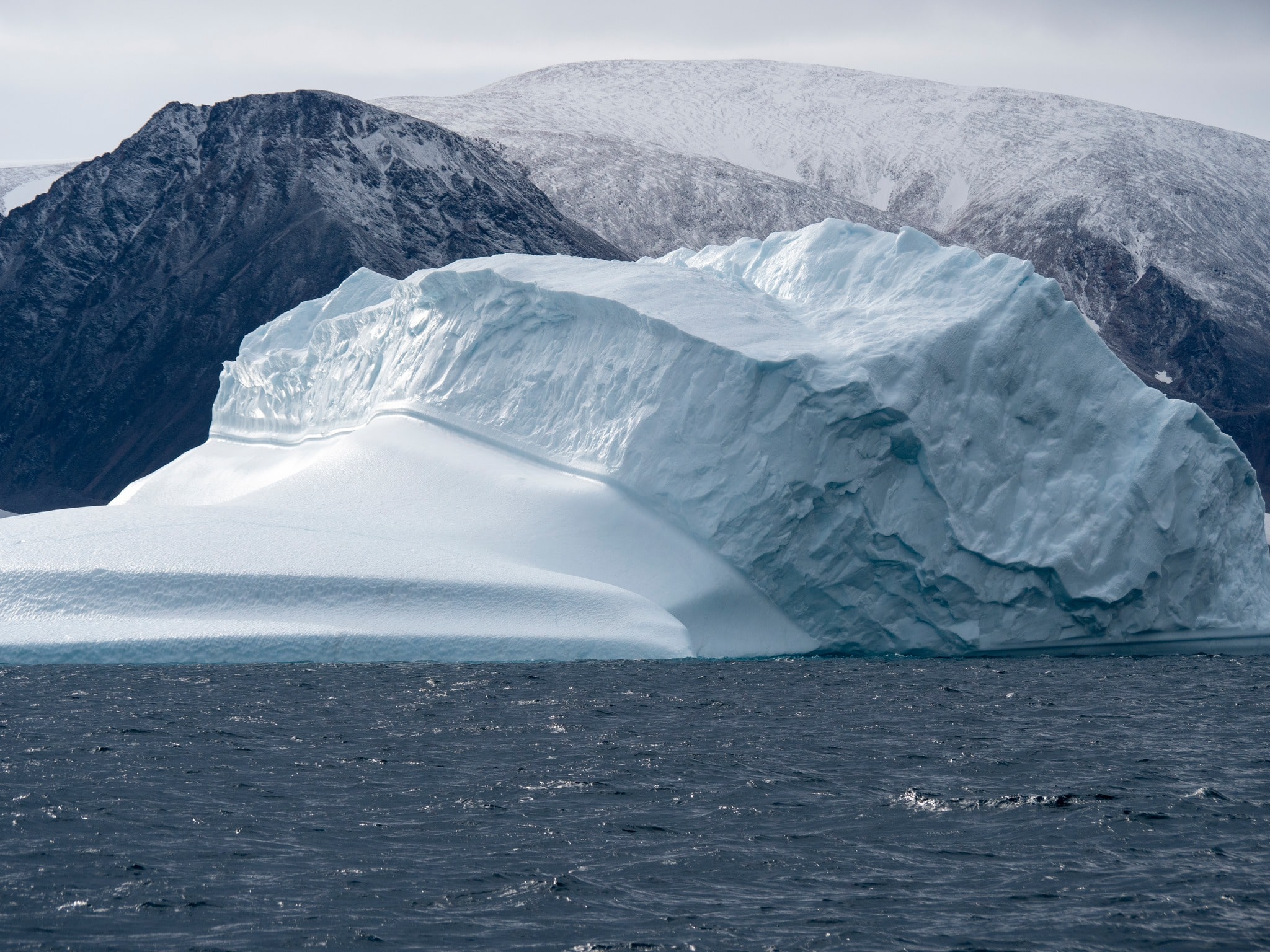Planetary Approaches to Arctic Politics: The Arctic Institute’s Planetary Series 2025 - Final Remarks

A huge iceberg in Lancaster Sound, Nunavut. Photo: Juho Karhu
The Arctic Institute Planetary Series 2025
- Planetary Approaches to Arctic Politics: The Arctic Institute’s Planetary Series 2025
- Relating to the Planetary Arctic: More-than-human considerations
- To the Earth and Back: Expanding Polar Legal Imagination
- Are Arctic Viruses “Zombies”?
- Thawing Grounds, Rising Stakes: The Importance of Including Permafrost Emissions in Climate Policy
- The Arctic Ocean as Kin: Rethinking Law through Relational Care
- Thinking with Ice: Sailing the Northwest Passage
- Geological and Prehistoric Foundations of Arctic Geopolitics
- Planetary Approaches to Arctic Politics: The Arctic Institute’s Planetary Series 2025 – Final Remarks
In a time characterised by the global climate crisis, biodiversity loss and pollution, imagining new ways of thinking and organising human-nature relations are crucial to maintain a stable and resilient Earth system in the future. While not downplaying the importance of much of the world’s current focus on hard security and geopolitical tensions, it is vital not to forget the biggest security threat of our time: climate change. In the Arctic, the last nine years have been the warmest on record, and Arctic sea ice is declining fast. This year, the maximum ice cover in the Arctic Ocean has been record low, and the region and its inhabitants are experiencing drastic changes.
Over these past few months, The Arctic Institute’s Planetary Series 2025 has introduced a variety of viewpoints and angles into understanding and rethinking the Arctic from a planetary perspective. Beginning with conceptual ponderings about how the Planetary Arctic could work as an alternative way of doing the Arctic, and continuing with a widening legal imagination of the Arctic, the series discusses potential ways of rethinking the current paradigms organising Arctic politics and beyond. From a planetary perspective, the epistemological and ontological assumptions about the world need to be reconsidered.
In the Arctic, climate change manifests in various ways. When describing one of the most visible implications of global heating at a regional level, that is, the thawing of permafrost, words and language certainly matter. Naming potential virus outbreaks emerging from the thawing ground as zombies increases the risk of portraying only grim futures for the Arctic. The emissions released by thawing permafrost should be taken seriously both regionally and in global decision-making. For now, permafrost thaw is not addressed in states’ national climate action plans, that is, the Nationally Determined Contributions under the Paris Agreement that play a key role in global efforts to tackle climate change. In the future, the recognition of emissions caused by permafrost thaw should be a priority in international climate politics.
On our quest to rethink what it means for humans to be one species among others living on the Earth, the role of the oceans is important, as over 70 per cent of the planet is covered by oceans. To think of oceans, such as the Arctic Ocean, as kin and to safeguard them with care is crucial for the well-being of the planet. The rich discussions on the legal personhood of more-than-human entities offer some food for thought to think differently about the hierarchies of human-nature relations. Yet, to truly embrace the interconnectedness and care between different species and actors, the relationality of the ocean should be acknowledged in global politics and governance.
The same line of thought applies to the sea ice in the Arctic. With an increased attention towards Arctic maritime routes and other geopolitical questions, the role and meaning of ice itself are often forgotten in political and legal discussions. Ice is anything but static, and the acknowledgement of the liveliness of the sea ice helps to comprehend the changes in the Arctic oceanic and political space.
The Arctic Institute’s Planetary series ends with a gaze at the history of the planet Earth itself and the different geological eras that have made their mark on this planet. This works as a reminder of how the human species has occupied the Earth for only a fraction of time, while the planet itself has a history long before us – and most likely long after us.
In conclusion, The Arctic Institute’s Planetary Series 2025 has sought to draw attention to the naked truth that human well-being depends on the planet’s well-being. While the political attention is increasingly occupied with hard security debates and zero-sum strategies, the looming ecological crisis is not disappearing in the Arctic or elsewhere. We hope this series has offered some food for thought for further considerations on how to reorganise human-nature relations to have a healthy planet in the future.
Sanna Kopra is a Senior Fellow at The Arctic Institute and a Research Professor at the Arctic Centre of the University of Lapland. Sohvi Kangasluoma is a Postdoctoral Researcher at the Arctic Centre of the University of Lapland.